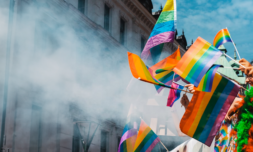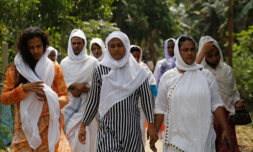The Indian state’s paradoxical stance on queer rights – oscillating between tokenistic reforms and harsh crackdowns – underscores the profound disconnect between political rhetoric and lived realities for the LGBTQ+ community.
The recent ban imposed by the Pune Police, prohibiting transgender individuals from ‘congregating at traffic junctions and forcibly demanding money from commuters,’ has ignited outrage within the community.
The draconian measure, enforced under Section 144 of the Criminal Procedure Code, has effectively criminalized a crucial means of livelihood for many transgender individuals, further marginalizing an already vulnerable population.
Institutional tokenism: committees and surveys
In a seeming gesture of inclusivity, the Central Government has established a six-member committee to address the myriad issues faced by the queer community.
This committee, formed at the directive of the Supreme Court while hearing a petition on marriage equality in November 2023, is tasked with suggesting measures to prevent discrimination in access to goods, services, and social welfare schemes, as well as mitigating the threat of violence.
However, such institutional efforts often fall short of effecting tangible change, reduced to mere tokenism and data collection exercises. The 2011 census, for instance, recorded a mere 4.9 lakh transgender individuals in India, a staggering underrepresentation that fails to capture the true diversity and scope of the community.
Despite the rhetoric of inclusivity and the establishment of committees, the lived experiences of queer individuals paint a grim picture of systemic exclusion and gendered violence. According to a 2021 report by the National Human Rights Commission, over 50% of transgender individuals in India have faced harassment or abuse from law enforcement agencies.
Moreover, the denial of fundamental rights, such as access to education, healthcare, and employment opportunities, remains a harsh reality for the queer community.
A 2017 study by the United Nations Development Programme (UNDP) revealed that a staggering 92% of transgender individuals are deprived of the right to participate in economic activities in India, forcing many to resort to begging or sex work for survival.




















